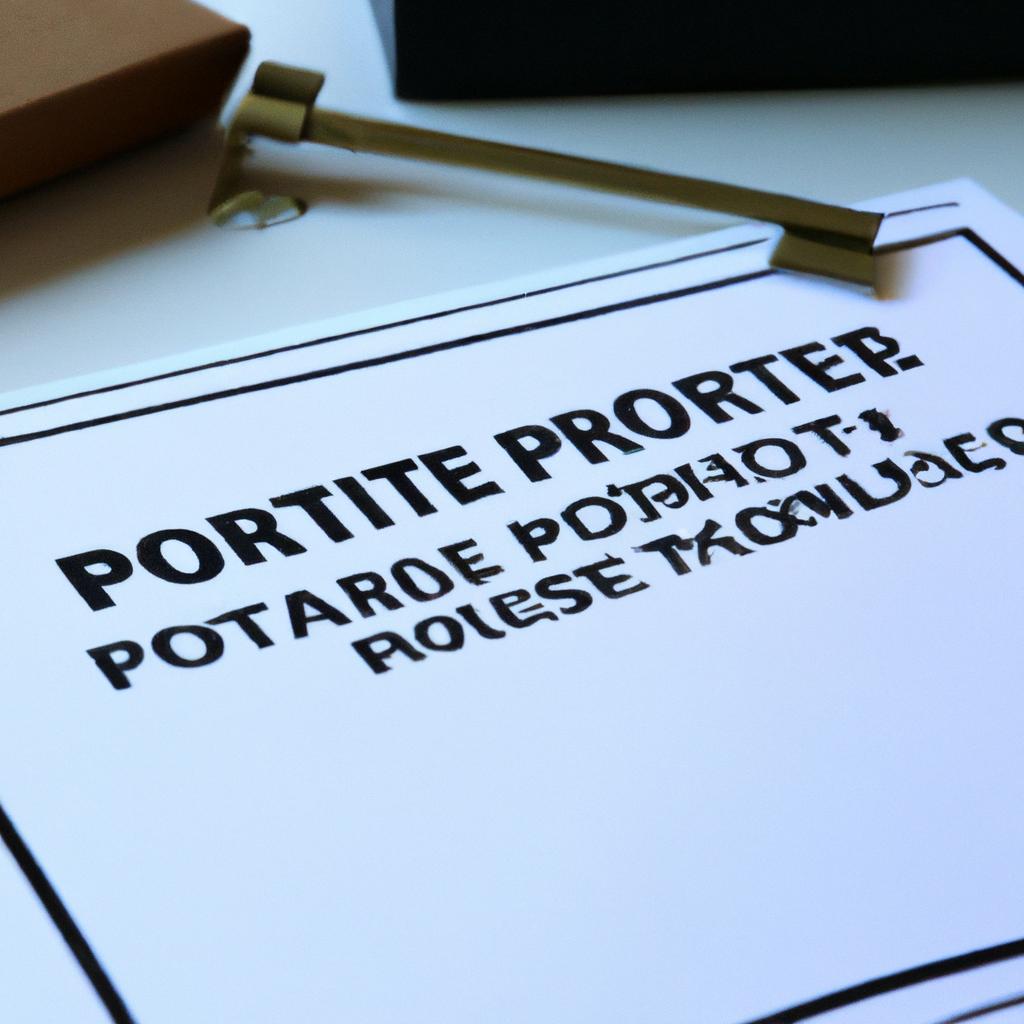When a spouse passes away, there are often legal complexities that arise, especially when it comes to ownership of property. One common scenario is when a husband passes away and the family home is solely in his name. In these situations, navigating the legal implications can be overwhelming. As experienced legal professionals at Morgan Legal Group in New York City, we specialize in estate planning, probate, and trusts. In this article, we will explore the steps that need to be taken when a husband has passed away and the family home is in his name.
– Understanding the Legal Implications of a Home Owned Solely by a Deceased Spouse
When a spouse passes away and the home is solely in their name, it can raise legal implications and complexities that need to be carefully navigated. In such situations, it is crucial to understand the legal ramifications and processes involved in transferring ownership of the property.
Here are some key points to consider:
- Probate Process: The property will likely need to go through the probate process to transfer ownership to the surviving spouse or heirs.
- Property Title: The title of the property will need to be updated to reflect the new ownership status.
- Deed Transfer: The deed may need to be transferred to the surviving spouse’s name through the appropriate legal channels.

– Navigating the Probate Process to Transfer Home Ownership
If your husband has passed away and the house is in his name, you will likely need to navigate the probate process in order to transfer ownership of the property. Probate can be a complex and time-consuming process, but with the help of a knowledgeable estate planning attorney, you can ensure that the transfer of ownership is handled smoothly and efficiently.
During the probate process, there are several steps that will need to be completed in order to transfer the property into your name. These steps may include:
- Filing a petition with the court to open probate
- Notifying creditors and beneficiaries of the estate
- Identifying and valuing the assets of the estate, including the home
- Transferring ownership of the property through the probate court

– Exploring Options for Retaining Ownership or Selling the Home
First and foremost, I want to express my heartfelt condolences for your loss. Losing a spouse is undoubtedly a difficult and emotional time, and I am here to offer guidance and support as you navigate the process of dealing with the ownership of your home.
It is understandable that you may have questions about what options are available to you in terms of retaining ownership of the home or selling it. In this situation, it is crucial to assess your financial situation, future goals, and any legal implications that may arise. Here are some possible options to consider:
- Retaining Ownership: You may choose to continue owning the home, either by transferring the title to your name or keeping it in your late husband’s name. This decision may involve factors such as mortgage payments, property taxes, and maintenance costs.
- Selling the Home: If you decide that selling the home is the best option for you, it is essential to understand the selling process, market conditions, and potential tax implications. Consulting with a real estate agent or financial advisor can help you make an informed decision.

– Securing Expert Legal Counsel to Ensure Proper Handling of Estate Assets
If your husband has passed away and the house is in his name, it is crucial to secure expert legal counsel to ensure the proper handling of estate assets. At Morgan Legal Group, we specialize in estate planning and probate to guide you through this complex process with care and expertise.
Our team of experienced attorneys will assist you in navigating the complexities of estate administration, including transferring ownership of the house, resolving outstanding debts, and distributing assets according to your husband’s wishes. With our support, you can rest assured that your loved one’s estate will be handled efficiently and effectively, providing you with peace of mind during this challenging time.
Q&A
Q: What happens if my husband passed away and the house is in his name?
A: When a spouse passes away and the house is solely in their name, the surviving spouse may face legal and financial challenges.
Q: Can I continue living in the house if it was owned by my husband?
A: It will depend on various factors such as whether there was a will, if the house was held in joint tenancy or as community property, and if there are any outstanding debts or liens on the property.
Q: How can I transfer the house into my name after my husband’s passing?
A: The process of transferring the house into your name may involve probate court, filing a deed, and possibly paying off any outstanding debts or liens on the property.
Q: What should I do if there was no will and the house is in my husband’s name?
A: If there was no will, state laws will determine how the property is distributed. You may need to consult with a probate attorney to help navigate the legal process.
Q: Are there any tax implications for inheriting a house from my deceased husband?
A: Inheriting a house may have tax implications, such as property taxes and potential capital gains taxes if you decide to sell the property in the future. It’s recommended to consult with a tax professional for guidance.
In Retrospect
In conclusion, navigating the legalities surrounding property ownership after the passing of a loved one can be a daunting task. It is important to seek guidance from professionals and take the necessary steps to transfer the ownership of the house to your name. Remember to take the time to grieve and seek support during this difficult time. Our thoughts are with you as you navigate this challenging process.
 Dealing with the loss of a loved one is never easy, and it becomes even more challenging when legal and financial matters come into play. When your husband passes away and the house is in his name, you may be wondering what steps you need to take and how it will affect your living situation. In this article, we will provide you with a comprehensive guide to navigating this difficult situation, along with some valuable tips and insights from experts and individuals who have been through a similar experience.
Dealing with the loss of a loved one is never easy, and it becomes even more challenging when legal and financial matters come into play. When your husband passes away and the house is in his name, you may be wondering what steps you need to take and how it will affect your living situation. In this article, we will provide you with a comprehensive guide to navigating this difficult situation, along with some valuable tips and insights from experts and individuals who have been through a similar experience.
Understanding the Situation:
Before we dive into the details, it’s important to have a clear understanding of what it means when the house is in your husband’s name. In most cases, this means that your husband was the sole owner of the property and that his name appears on the deed or title. If you and your husband jointly owned the house, the process of dealing with the property after his passing may be different. It’s best to consult with an attorney or a legal expert in this situation to understand your rights and responsibilities.
What Happens to the House?
When a person passes away, their assets, including their property, go through a legal process known as probate. During probate, the court will identify and distribute the assets according to the deceased’s will or state laws if there is no will in place. In the case of a house that is solely owned by the deceased, it will undergo the probate process, and the ownership will eventually be transferred to the rightful heirs.
However, the probate process can be lengthy and costly, and it may take several months or even years to complete. This means that the house may be tied up in legal proceedings, and you may not have access to it during this time. In most cases, the executor of the will or the court-appointed administrator will handle the probate process.
If there is a mortgage or any outstanding loans on the property, they will have to be paid off before the property can be transferred to the heirs. If the house has a joint owner, they may have to take over the mortgage payments. In some cases, the heir may choose to sell the house and use the proceeds to pay off the debts.
What Are Your Options?
As the surviving spouse, you may have several options when it comes to dealing with the house after your husband’s passing. It’s important to consult with professionals and take your time to make the right decision for you and your family. Some options include:
1. Living in the House:
If you and your husband were living in the house at the time of his passing, you may be able to continue living there if you can afford to maintain the property on your own. You may also have the option to purchase the house from the estate at a fair market value, or it may be transferred to you as part of the inheritance.
2. Renting Out the Property:
If you are unable to maintain the house on your own, you may consider renting it out to generate some income. However, keep in mind that becoming a landlord comes with its own set of responsibilities, and you may have to deal with tenants, repairs, and other issues.
3. Selling the House:
If the house has significant mortgage or maintenance costs, or if you are unable to continue living in the house, selling it may be the best option. However, keep in mind that the sale will have to go through the probate process, and you may not have control over the selling price or timing.
Tips for Dealing with the House After Your Husband’s Passing:
1. Seek Legal and Financial Advice:
The probate process and dealing with your husband’s finances may be overwhelming, especially during this difficult time. It’s important to seek legal and financial advice from professionals who can guide you through the process and ensure that your rights are protected.
2. Communicate with Family:
It’s important to communicate with your family members and keep them updated on the situation. If there are siblings or other heirs involved, this can help prevent conflicts and ensure that everyone is on the same page.
3. Review Your Housing Options:
Take some time to review your housing options and assess if you can afford to maintain the property on your own. If not, it may be best to consider other options, such as selling the house or renting it out.
4. Be Patient:
The probate process can be lengthy, and there may be delays and complications along the way. It’s essential to be patient and understanding, as these matters take time to resolve.
In Conclusion:
Dealing with the loss of a spouse is never easy, and the added stress of handling legal and financial matters can make the situation even more challenging. Remember to seek professional guidance and communicate with your family throughout the process. Take your time to make the best decision for you and your family’s future.
We hope this article has provided you with valuable information and insights on how to navigate the situation when your husband passes away and the house is in his name. Remember to take care of yourself and seek the support you need during this difficult time.

